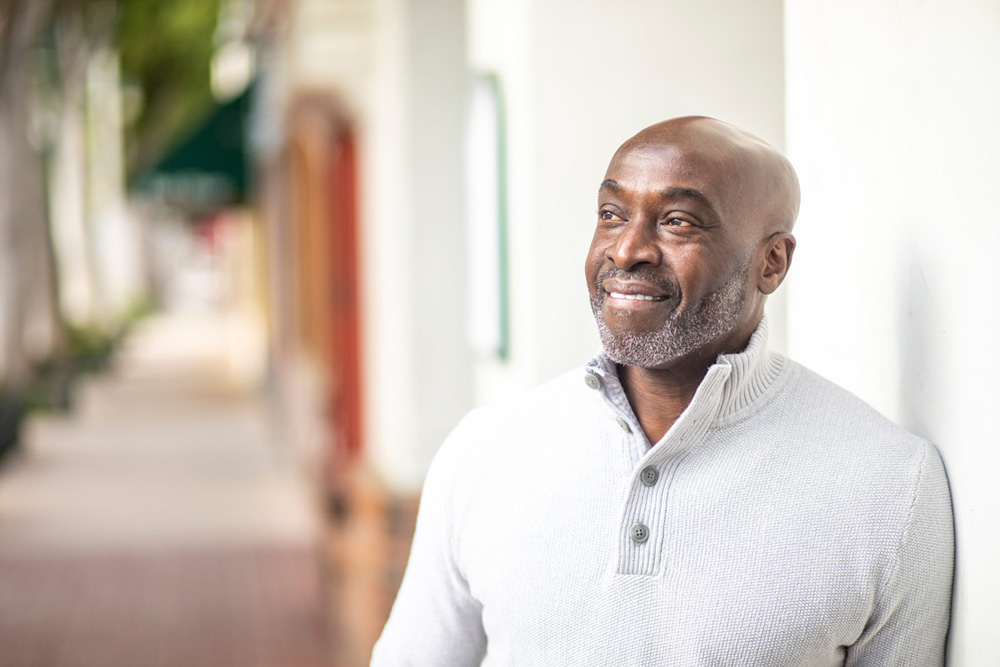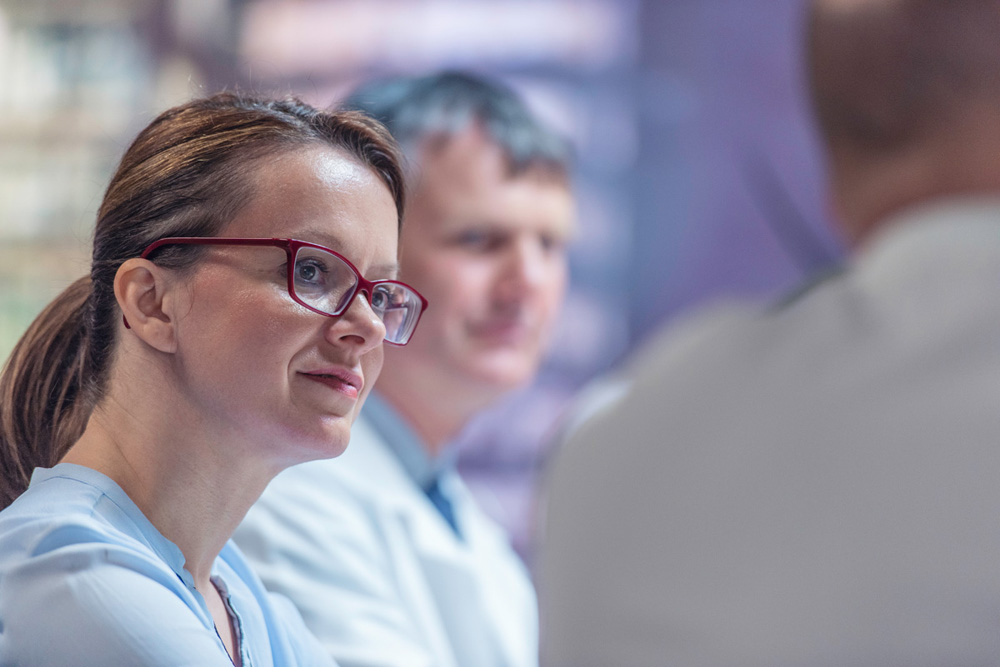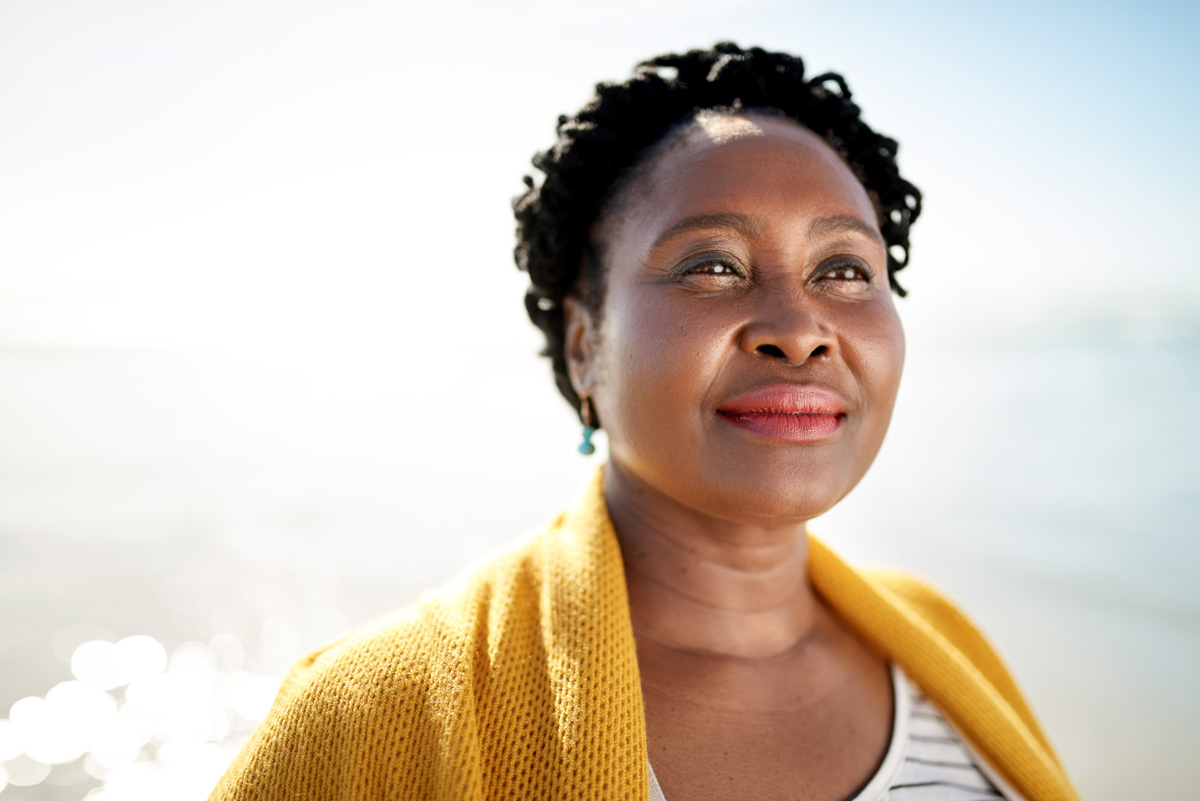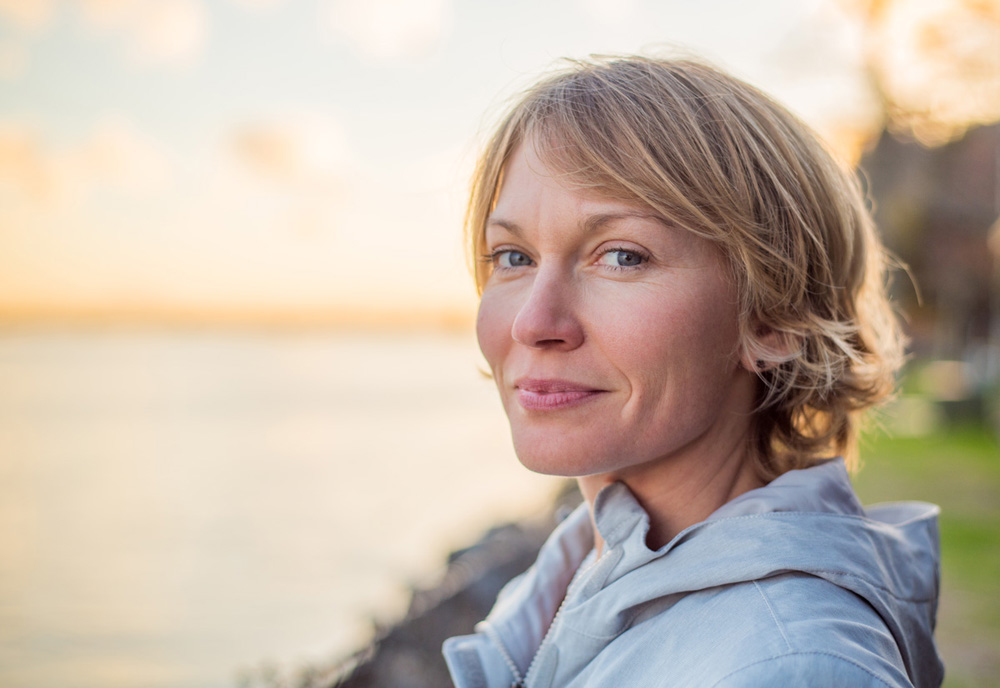- Patients
- Exploring cancer care
- Conditions we treat
- Gastrointestinal cancer
- Stomach cancer
Introduction
Stomach cancer
Stomach cancer treatment at GenesisCare
We are specialists in the latest techniques for diagnosing and treating all types of cancer, including stomach cancer. We have teams of highly trained cancer specialists who are experts in this disease. They work together to evaluate the newest, evidence-based approaches so we can offer these to every patient – without delay.

Treatment overview
Chapter 1
Treatment overview
Stomach cancer treatment may include one or more of surgery, chemotherapy, radiotherapy, targeted therapy or immunotherapy, along with specialists in diet and nutrition. We combine this with consultant-led integrative care, such as wellbeing therapies and psychological support, to help you achieve the best possible outcome. Our qualified physiotherapists and wellbeing consultants will carefully plan these therapies tailored to your needs by working with you and your consultant.
Stomach (or gastric) cancer can develop anywhere inside the stomach or stomach wall. According to Cancer Research UK, there are around 6,600 new cases of stomach cancer in the UK each year. Stomach cancer usually affects older people, over half of the people who develop it are 75 or older. Early diagnosis and treatment usually mean there is a better chance of a positive outcome.
We are the UK’s leading specialist private cancer care provider. By choosing us, you can be reassured that your treatment will be managed by a team of specialists working together, with you, to decide the best, personalised care plan for your diagnosis.
It is our commitment to offer world-class care to every patient with cancer.
How is stomach cancer treated?
There are a number of options of treatment available for stomach cancer at GenesisCare, such as:
- Surgery – removal of part or all of the stomach
- Chemotherapy – anti-cancer (cytotoxic) drugs which destroy the cancerous cells
- Radiotherapy – high-energy radiation beams which are targeted at the cancer cells
- Targeted therapy – a specialised group of drugs that attack or block certain processes in the cancer cells
- Immunotherapy – drugs that help your body’s immune system recognise and fight the cancer
Contact us
These web pages provide more information about stomach cancer treatment at GenesisCare. If you'd like to contact us in confidence, we will be happy to answer any of your questions.
Diagnostics
Chapter 2
Diagnostics
At GenesisCare, we diagnose and treat a wide range of cancers, and we understand that this can be a very worrying time. Our diagnostic services are world-class, and our commitment is to give you the answers you need, as quickly as possible. It’s important to remember that symptoms can often be caused by other conditions and not always stomach cancer. But, whatever your diagnosis, we can make sure you get the expert care you need and without delay.
If you’re concerned about stomach cancer symptoms, we offer specialist diagnostics and tests for stomach cancer in our centres. Here you’ll see one of our expert consultants who specialise in cancers affecting the stomach. They’ll assess your symptoms and, if necessary, refer you for diagnostic tests such as an endoscopy, biopsy, blood tests or imaging scans (including CT, PET/CT and ultrasound). You’ll also need to see one of our specialist dietitians.
Stomach cancer symptoms
Tumours are often small in the early stages of stomach cancer and you may not experience any symptoms until the condition has become more advanced. The most common signs of stomach cancer are:
- Heartburn
- Indigestion (dyspepsia)
- Feeling bloated after eating
- Loss of appetite
- Unexpected weight loss
- Excessive burping
Other stomach cancer symptoms include:
- Swallowing difficulties (dysphagia)
- Pain in your abdomen or behind your breastbone (sternum)
- Nausea
- Vomiting
- Breathlessness
- Tiredness due to low red blood cell count (anaemia)
- Excessive hiccups
- Black stools
Other benign conditions may cause these symptoms and having one or more of the signs above doesn’t mean you have stomach cancer. If you’re concerned about stomach cancer, you should talk to your GP, and they can refer you to a specialist if they think it’s needed, or you can book directly with us.
Surgery
Chapter 3
Surgery
Surgery is the primary treatment for early stomach cancer and forms part of an overall treatment and care plan for stomach cancer that hasn’t spread.
Our consultants include expert surgeons who work in local and nationally renowned hospitals and will work together with other cancer specialists to decide the best course of treatment for you. If your consultant recommends stomach cancer surgery, this can be arranged conveniently at one of our partner hospitals. You can then continue your other treatments at GenesisCare.
There are different procedures for stomach cancer surgery, and your surgeon will recommend the most appropriate technique depending on the location, size and stage of your tumour. If your cancer is causing a blockage in your stomach, palliative surgery can also help relieve any associated symptoms. Other options include putting a metal stent into the stomach to relieve any blockage.
Our team also includes specialist dietitians, who may prepare you for surgery and help with your recovery and rehabilitation.
Surgery side effects
No treatment is without side effects. Your doctor will explain these to you, together with the ways your treatment plan and supportive care can help manage or minimise these.
Drug treatments
Chapter 4
Drug treatments
At GenesisCare, we offer all drug therapies that can be used to treat and manage stomach cancer, including many of the newest treatments. Depending on how these treatments are given to you, you may need to attend one of our private chemotherapy suites which are staffed by our specialist nurses. Our compassionate nursing teams are available 24/7 on a dedicated on-call telephone service and can answer any queries during your treatment. They’ll be able to provide advice about side effects or symptoms and help arrange appropriate medical care when needed.
Our centres have all received the Macmillan Quality Environment Mark to reflect the quality of care we provide for people living with cancer.
There are different types of drug treatments, also called systemic anti-cancer therapies. Our expert teams continually review and assess new treatments to make these available to GenesisCare patients as early as possible.
Chemotherapy for stomach cancer
Chemotherapy uses cytotoxic (anti-cancer) drugs to destroy cancer cells. Chemotherapy for stomach cancer can be delivered on its own or in combination with radiotherapy (chemoradiation). You’ll likely have chemotherapy or chemoradiation before surgery to reduce the size of your tumour before the operation or after surgery to prevent the cancer from coming back.
Targeted therapy for stomach cancer
Targeted (also called biological) therapies are a specialised group of drugs that have been designed to attack or block specific processes in cancer cells that tumours depend on to survive and grow. You may have targeted therapies alongside chemotherapy as part of your treatment for advanced or metastatic stomach cancer, where it has spread to other parts of your body.
Monoclonal antibodies (or MABs) are the main targeted therapy for stomach cancer. They recognise and bind to proteins on the outside of cancer cells which encourage them to divide. You may be suitable for treatment with MABs if your cancer has a large amount of HER2 (this type of stomach cancer is called HER2 positive). HER2 is the protein to which the drugs bind.
There are also other targeted therapies for stomach cancers, called angiogenesis inhibitors. These drugs interfere with the cancer’s ability to make its own blood supply, a process called angiogenesis. Without a good supply of blood, the growth of the cancer will slow and the tumour may shrink.
Immunotherapy for stomach cancer
Immunotherapies work by helping your body’s own immune system to recognise and fight the cancer. Checkpoint inhibitors are an effective immunotherapy against some stomach cancers. They work by blocking the signals from the stomach cancer cells that usually stop the immune system from fighting against the cancer properly.
Only a small proportion of stomach cancers are suitable for immunotherapy, your oncologist will arrange some special tests to work out if you could benefit from this treatment.
Palliative care
If your cancer has spread to other parts of the body, it’s called advanced or metastatic stomach cancer. At GenesisCare, you can receive palliative drug treatment for advanced stomach cancer, to reduce the size and progress of your cancer and ease any symptoms.
Personalised medicine
For some advanced cancers, we use specialist tests, such as liquid biopsy or genomic testing, to understand the genetic make-up of cancer cells. This helps us to identify which drugs are available to work against the particular genetic mutations in a cancer, allowing us to start effective treatment without delay.
There may also be opportunities to access clinical trials for the newest treatments for stomach cancer.
Drug treatment side effects
No treatment is without side effects. Your doctor will explain these to you depending on your drug treatment, together with the ways your treatment plan and supportive care can help manage or minimise these.
Radiotherapy
Chapter 5
Radiotherapy
Radiotherapy uses targeted, high-energy radiation beams to destroy cancer cells. Radiotherapy isn’t a common treatment for stomach cancer, but you might have it in combination with chemotherapy (chemoradiation) after surgery, or to help relieve symptoms of advanced disease such as pain or bleeding. Sometimes, radiotherapy is given before surgery to help shrink the tumour prior to your operation.
At GenesisCare, we are the leading private provider of radiotherapy in the UK and offer world-class expertise and state-of-the-art facilities that specialise in advanced radiotherapy techniques. Our latest-generation radiotherapy machines (called linacs) deliver highly targeted radiation beams that are designed to be effective while minimising the radiation dose to healthy tissues.
Your treatment will be governed by our expert multidisciplinary teams (MDTs), consisting of oncologists, radiotherapists and dietitians, who work together to ensure that you only receive the best possible care.
Radiotherapy techniques for stomach cancer
Volumetric modulated arc therapy (VMAT) is a modern radiotherapy technique that directs beams of radiation in an arc across the treatment area. Together with surface-guided radiotherapy (SGRT), it’s possible to precisely target areas of cancer, adjusting the beam and intensity of the radiation dose to allow for movements in the body and avoid healthy tissues. Side effects of radiotherapy occur when healthy tissues receive radiation, so using this technique helps to limit the dose to tissues and organs surrounding the tumour. At GenesisCare, we offer VMAT wherever possible because it is widely recognised to be the highest standard of care currently available for patients needing this type of radiotherapy.
We also offer palliative VMAT radiotherapy for those living with advanced stomach cancer, where it has spread elsewhere in the body, to improve pain and increase mobility. We understand that fast access to palliative care is paramount and can usually provide treatment within 48 hours of a planning imaging scan.
Side effects of radiotherapy
No treatment is without side effects. Your doctor will explain these to you at the start of your course of radiotherapy, together with the ways your treatment plan and supporting care can help to manage or minimise these.
Integrative care
Chapter 6
Integrative care
At GenesisCare, we do more than just treat your cancer. As part of our unique and integrative approach to cancer care, you can expect the best possible care and a personalised treatment plan that includes access to life-changing therapies which are proven to improve cancer-related outcomes. These therapies will be tailored to you to help you manage and cope with your cancer as well as the specific side effects of treatment.
Exercise medicine
Exercise medicine is a personalised programme of carefully planned and supported physical activity that has been shown to improve outcomes for cancer patients, enhancing quality of life and limiting the impact of cancer, such as by improving strength and reducing fatigue. One of our physiotherapists specialising in exercise for people living with cancer will provide a 12-week programme tailored to your needs and supported by our dedicated GenesisCare Exercise Medicine app. They’ll work closely with you to monitor changes in your health and support you throughout the programme to help you get the best results. This is available at selected GenesisCare centres.
Wellbeing
We also offer a wellbeing expert and holistic therapies such as counselling, acupuncture, massage and reflexology through our unique partnership with the Penny Brohn UK charity. This service is available to all stomach cancer patients at any of our 14 UK centres.
Why choose us?
Chapter 7
Why choose us?
GenesisCare is a leading private provider of cancer care, offering the latest innovations and techniques that are proven to be safe and effective. If you choose us for small bowel cancer treatment you will be under the care of a team of experts, including consultant oncologists, surgeons and dietitians. They will design a personalised care plan based around your diagnosis and preferences, with treatment starting within days if needed. Every patient is also supported through their journey with life-changing therapies, such as exercise medicine and psychological support.
Our dedicated cancer centres are convenient and easy-to-access. You can use your private medical insurance, and we‘re recognised by all leading insurers.
We‘re proud that so many patients rate our care as excellent as we help them through their cancer journey. Find out more about the unique experiences of people who have had their cancer diagnosis or treatment at GenesisCare in our patient stories section.
Further reading
Read next

Doctors
Our doctors
GenesisCare works with many leading and experienced cancer doctors who share our commitment to providing excellent patient care

Centres
Our centres
With 440 centres across the world, we're continuing to diagnose and treat without delay, bringing specialist care closer to our patients in the UK, Spain, Australia and the US.

Cancer care
Exploring cancer care
We are the UK’s leading private provider of advanced radiotherapy and cancer care. We offer fast access to the latest technology and treatments that has been proven to make a difference.

Cancer care
How can we help?
Accessing world-class cancer care is easier than you think. Follow these easy steps to get treatment, tests and scans, or a second opinion at GenesisCare, and find out the different ways of funding your cancer care.

Patient support
Patient stories
We believe patients can be our teachers and trusted advisers, benefiting from their unique experiences.